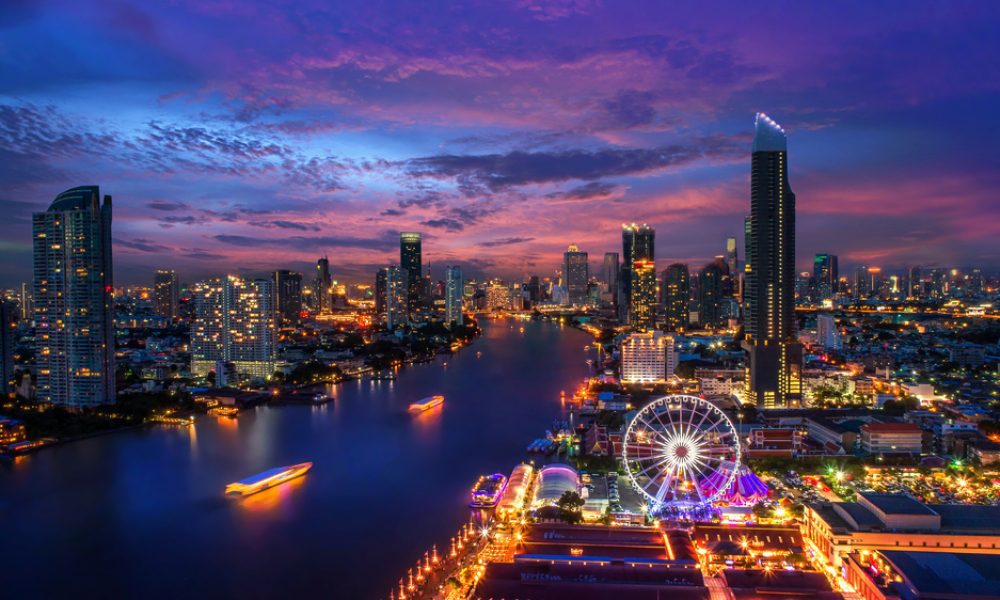At a recent gaming conference in Singapore, a group of industry experts sat down to discuss forthcoming legislation that will authorize the creation of a casino industry in the Kingdom of Thailand. One topic was the development of gaming regulations with panelists questioning whether the Thai government was capable of creating legislation that would attract U.S.-based operators while not running afoul of gaming regulators in U.S. jurisdictions where those operators have casinos.
One panelist cited Thailand’s recent legalization of recreational marijuana as an example. The original intent was to authorize the sale of marijuana for medicinal purposes, but ultimately a law was passed that legalized the sale of recreational marijuana. As an international tourism destination, legislators probably recognized that a medical marijuana industry that required would-be purchasers to have some form of prescription was an unwieldy requirement. Ultimately, they passed regulations that best met the needs of government, its citizens and the tourism industry.

A Bangkok marijuana dispensary (Photo by Andrew Klebanow)
A recent walk down the primary tourism corridors of Bangkok did not reveal the flagrant use of marijuana by tourists and, in fact, was far more subdued than the ride-share pickup area at Las Vegas’s Harry Reid International Airport. Bangkok dispensaries appeared stylish, well capitalized, and were a far cry from the street hawkers selling merchandise from tables on the city’s crowded sidewalks.
The comments made at the conference implied that only with the advice of westerners can the Thai government create a regulatory framework that meets the world’s toughest regulatory standards. Yet one does not need to travel very far from East Asia to find jurisdictions where gaming regulation failed to prevent money laundering and a host of other damning breakdowns.
Australia’s various gaming regulatory bodies failed repeatedly to recognize the egregious corporate behavior of the licensees they were tasked to oversee. In 2016, sixteen Crown Resorts employees were arrested and jailed in the People’s Republic of China for violating the PRC’s laws regarding debt collection and the promotion of gambling to its citizens. Those arrests and subsequent prison sentences did not seem to pique the concern of Australian regulators.
In 2021, after investigative reports in Australian media, an independent commission found Crown Resorts unsuitable to hold a license in New South Wales for violating a host of gaming regulations at its other properties. Again, regulators had turned a blind eye to those transgressions, and only took action after the release of the independent report.
Crown Resorts was not alone in violating gaming regulations. In 2022, the New South Wales Independent Casino Commission fined Star Entertainment Group AU$100 million (US$62 million) for violating a slew of regulations, including the use of China UnionPay cards to fund gambling at The Star Sydney, Star’s dealing with Asian junket operator Suncity Group, and the company’s tepid response to independent audits of its anti-money laundering and counterterrorism financing controls. Star paid the ticket, dismissed some executives and kept their license.
Asian countries are more than capable of creating strict regulations and holding regulators accountable for enforcing those laws. One need only visit the two integrated casino resorts in Singapore to experience how serious regulators take their role. To enter a casino, visitors go through an inspection process akin to passing through the Immigration counter at Changi International Airport. Residents have a far worse time as they have to pony up a SS$150 (US$106) daily entry fee. Vendors hoping to do business with those casinos must submit to extensive background checks. A gaming executive wishing to comp a cup of coffee for a guest must provide a detailed description on the back of the receipt before submitting it for reimbursement.
Japan was the latest country to develop regulations governing their nascent casino industry. Using Singapore as its model, government overseers created a raft of laws, regulations and fees that scared away most of the world’s largest casino operators. Ultimately, those regulations did more to harm the creation of an industry than Australia’s casinos and their regulators’ disregard did to nearly destroy their gaming industry.
Much of the concern over the development of Thailand’s gaming regulations stems from the actions taken by the New Jersey Casino Control Commission (NJCCC). In March of 2010, MGM-Mirage, development partner in the Borgata Casino Resort in Atlantic City, was faced with a decision. The NJCCC took issue with MGM’s ownership interest in a casino in Macau, and its development partner, Pansy Ho. Ms. Ho was the daughter of gambling scion Stanley Ho. The NJCCC suspected the elder Ho of having ties to China’s triads and assumed his daughter guilty solely by her relationship to her father. MGM, faced with choosing to keep a 50 percent ownership interest in a property in a New Jersey market that was cratering due to the onset of casinos in Pennsylvania, or retain its ownership interest in Macau (which had become the largest gaming market on the planet), chose to surrender its New Jersey license. It was an embarrassing event for both regulator and operator. Four years later, the two parties chose a face-saving path and MGM’s license was ultimately restored.
Those Thai government officials that will ultimately be tasked with creating a regulatory framework and enforcing it will no doubt be more than capable of completing those duties. What is important to understand is that those regulations will be designed to cater to the unique nuances of Thai culture. Gaming regulators in New Jersey or another U.S. jurisdiction might frown on certain aspects of those regulations and what will ultimately be permitted in those casinos, and may even threaten to revoke the licenses of operators in their jurisdictions should they decide to apply for a coveted Thai gaming license. And that is okay.
Thailand’s emerging gaming industry will not be dependent solely on the deep pockets of U.S.-based casino operators or their managerial expertise. There are a sufficient number of casino operators based in Asia that are more than capable of funding, designing, building and operating multi-billion dollar casino resorts. Those resorts may look different from casinos in the U.S., and the various kinds of entertainment they will offer or their marketing practices may offend U.S. regulators, but those regulations will suit the needs of the Thai people. Ultimately, that is all that matters.



